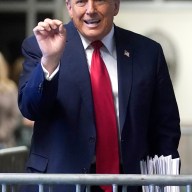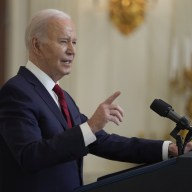 Get excited for the World Cup, but don’t get caught up in a betting fraud.
Get excited for the World Cup, but don’t get caught up in a betting fraud.
Credit: Reuters
“The most important issue for me is not match fixing but betting fraud – because it is betting fraud that funds match fixing,” says Chris Eaton, Director of Sport Integrity at the International Centre for Sport Security.
The former FIFA head of security has long been vocalizing the need for a “coherent global regulatory system for sport betting.” The organization would work in a similar fashion to the banking world’s Financial Action Task Force that was set up by the wealthiest governments in the late 1980s to combat fraudulent transactions.
The call for a formalized arrangement has grown stronger since the New York Times published information from FIFA’s investigative report that highlighted match fixing by referee Ibrahim Chaibou in the run-up to the South Africa World Cup. Chaibou allegedly deposited $100,000 dollars in $100 bills at a small local bank. It’s been South Africa’s slow response to a slew of criminal activity that has irrevocably affected their football association’s reputation and caused questioning over the so-called integrity of the Beautiful Game.
It’s a situation that is further complicated by the lack of uniformity in trans-national betting laws and legislation. This makes it almost impossible to quantify the exact cost of criminality.
Yet fours years on, Eaton believes vital lessons have been learned from 2010 that will help combat any similar situations occurring in Brazil.
However, sport betting is something that is not only targeted at major events like the World Cup. In fact, an estimated $1 trillion is transacted through sport betting annually. It’s a growing market, “because it is so loosely regulated that it has become a prime target for organized crime,” says Eaton. “Governments are giving defrauders two free kicks here – to launder money through unregulated betting and steal away sport’s soul through match fixing.”
International criminal organizations – for the most part based in countries such as China, Indonesia, Malaysia, Singapore, Philippines and Hong Kong – are also stealing away with monetary figures that are totaling hundreds of millions, if not $1 billion each year. This illicitly-gained income is then used for other criminal activities.
“Governments are essentially funding crime due to their reluctance to regulate the system, primarily because China is the main contributor to the global economy on sport betting. All countries are frightened of China today,” asserts Eaton.
Although much of the activity stems from southeast Asia, the corruption is a malignant cancer that has spread to all nations. “You can’t exclude one country, the threat is global,” explains Andreas Krannich, the CEO and founder of Sportradar, a sports betting data provider. It’s the scale and multi-faceted nature of the criminality that is making it impossible for the sport, or organizations like FIFA to tackle alone.
“Sport needs to be cohesively joined up from the police, to gambling and international regulators, so that there is a cross-board approach and solution,” says Eaton. He adds: “This unified system has been used in banking and in the fight against terrorism. – two standout examples.”
If comparing fraudulent betting to terrorism reads like hyperbolic scaremongering, for Eaton the effects can be just as destructive. “Sport is too important to the social fabric of the globe. If sport becomes soulless and compromised we will have lost the global harmony and peace that sports like football bring. And what will we replace it with?”
Wilson Perumal: the ultimate football fixer
– Australian police arrested 10 players, many of them British after it was claimed that Wilson Perumal had orchestrated the multi-million dollar match fixing ring focused on the second tier of the Victorian Premier League.
– Singaporean national Perumal was sentenced to two years, along with nine players for match-fixing in Finland between June 2008 and February 2011. He paid players up to €20,000 per match and received up to €50,000 himself.
– In Zimbabwe 15 players & officials were banned for life in October 2012 after a lengthy match-fixing scandal. An official report said that games were fixed by ZIFA officials and Wilson Perumal.
















